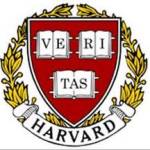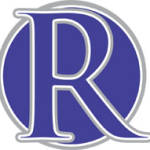 At Harvard University, here is the reading list for the 2012 entering freshman class:
At Harvard University, here is the reading list for the 2012 entering freshman class:
* A More Perfect Union — Barack Obama, 2008. President Obama’s speech at the 2008 Democratic Presidential Primary, addressing race and inequality in the United States.
* Every Asian American I Know Is Smart — Frank H. Wu (Professor of Law at Harvard), 2009. Wu explores the foundations and flaws of stereotypes associated with Asian Americans.
* Choosing the Color of My Collar — David Tebaldi (Harvard Alumni), 2010. Tebaldi reflects on how becoming a member of the Harvard community influenced his personal sense of identity.
* Who Is the Surgeon? — Chris Barrett (Harvard Alumni), 2012. Barrett’s criticism of the widespread stereotyping of surgeons as male and heterosexual.
* Whistling Vivaldi: And Other Clues to How Stereotypes Affect Us — Claude M. Steele, 2010. Steele shares the experiments and studies that show that exposing subjects to stereotypes impairs their performance in the area affected by the stereotype.
* Psalm — Wislawa Szymborska, 1976. “Oh, the leaky boundaries of man-made states!”
 At Rockford College, here is the reading list for the 2012 freshman philosophy course:
At Rockford College, here is the reading list for the 2012 freshman philosophy course:
* Apology of Socrates — Plato, c. 360 BCE. Plato’s recounting of the speech given by Socrates as he defended himself against the charges of “corrupting the young, and by not believing in the gods in whom the city believes.”
* Letter to the Grand Duchess Christina — Galileo Galilei, 1615. Galileo discusses his solution to the tension between the revelations of the Bible and the new scientific discoveries of his time.
* Meditations on First Philosophy — René Descartes, 1647. Descartes first discards all belief in things which are not absolutely certain, and then tries to establish what can be known for sure.
* A Panegyric upon Abraham (from Fear and Trembling) — Søren Kierkegaard, 1843. Kierkegaard uses the Biblical story of Abraham and Isaac to illustrate the conflict of faith with reason.
* Civilization and Its Discontents — Sigmund Freud, 1930. Freud enumerates what he sees as the fundamental tensions between civilization and the individual.
* The Fountainhead — Ayn Rand, 1943. Rand addresses a number of universal themes including the strength of the individual and the sources of integrity and independence.
Harvard’s list: Six contemporaries with a focus on politically-partisan race/class/gender issues.
Rockford’s list: Six great classic and contemporary thinkers with widely varying perspectives.
Sources:
John Leo, “Harvard Tells the Freshmen What to Read.” Minding the Campus, September 27, 2012.
My “Introduction to Philosophy” syllabus [pdf], Fall 2012.
You failed to note that Harvard also failed to discover THE HICKS BOSON!
Hmmm … I know about the Higgs Boson, but not the Hicks one. What is that — a cross between a bozo and a moron?
I appreciate the intent here, but it’s apples-to-oranges. This is not the Harvard reading list for an intro to philosophy course.
What do you think the important point is, Daniel?
1. That one list is ideologically narrow and partisan while the other list is broad and engages the debates; or
2. That one list is for all college freshmen students while the other is for philosophy college freshmen students.